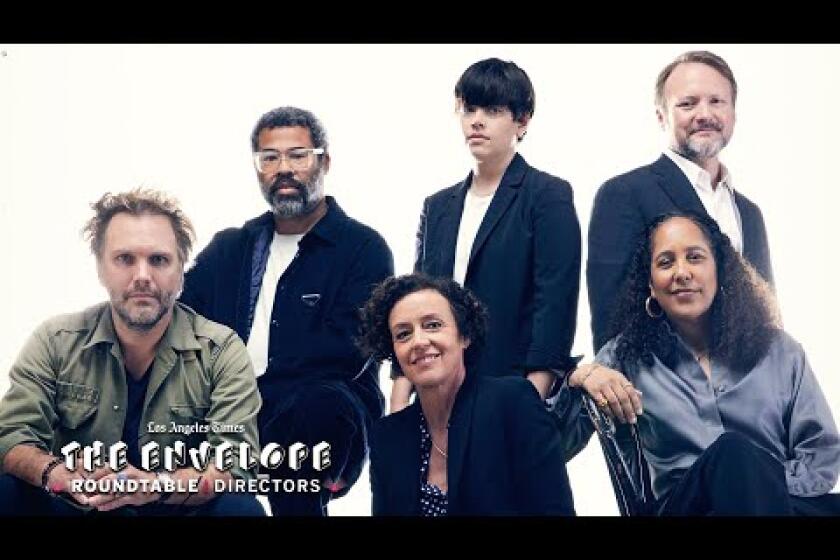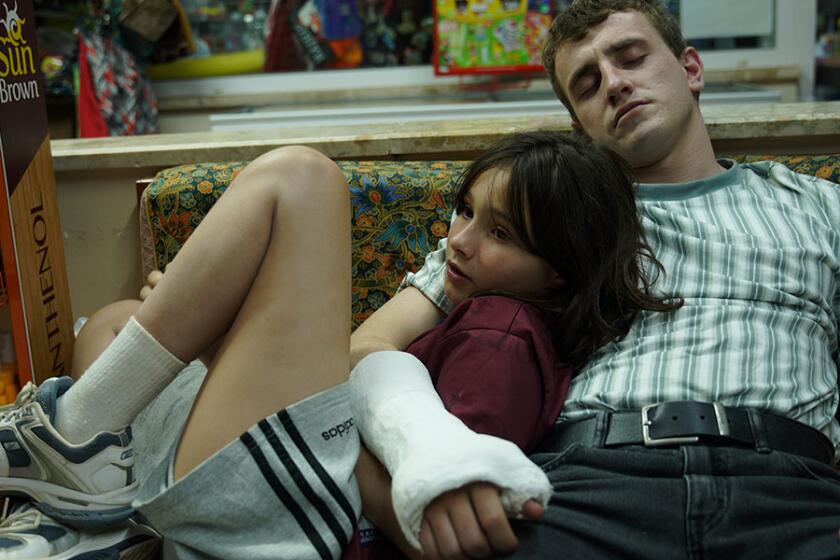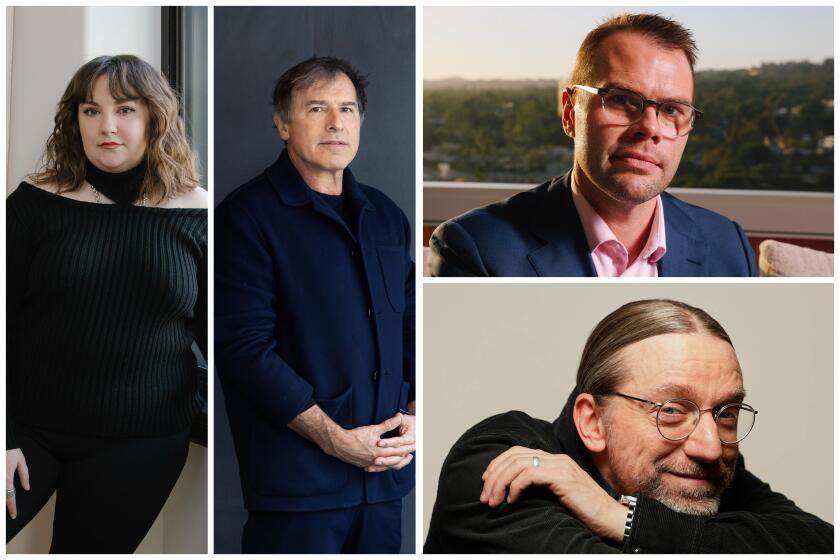Charlotte Wells examines the push and pull of making a private story public
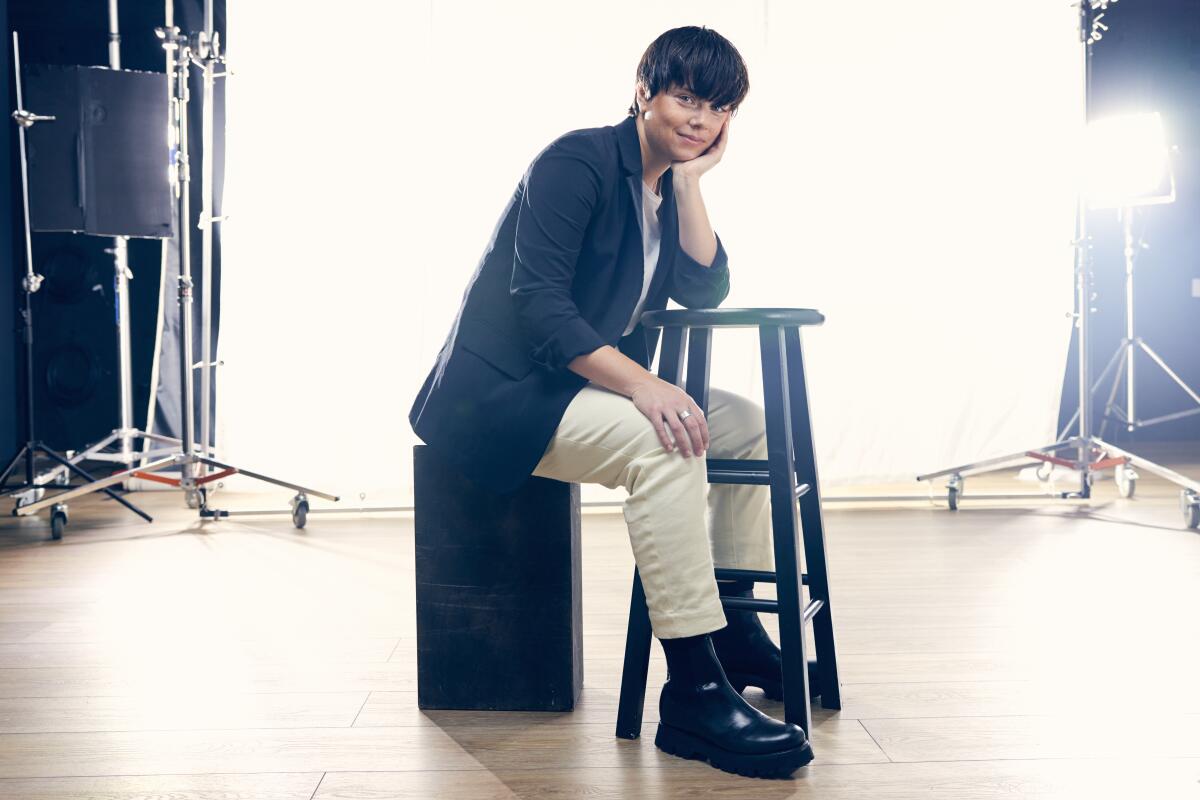
“This is the kind of interview that could get me into trouble,” she says, taking a cautious sip of lukewarm, slightly too strong tea from a mug emblazoned with the tagline of a corporate law firm where she undertook a week of work experience exactly 14 years ago.
Charlotte Wells, who resides in New York, is in the English countryside seated at an impromptu desk beside her mother’s Christmas tree, trimmed with tinsel and fairy lights whose electrical circuit has been interrupted by a guilty bulb somewhere along the chain. As Hollywood quietens for the holidays, she has been afforded a rare moment to reflect “on a wild and wonderful six months” since “Aftersun” premiered in Critics’ Week at Cannes. The film depicts 11-year-old Sophie (newcomer Frankie Corio) and her young dad Calum (Paul Mescal) on vacation in Turkey in the late 1990s, told subtly through the point of view of Sophie as an adult 20 years later.
When I ask what trouble looks like, Wells’ gaze falls softly to the flickering reflection of the tree lights in the window. “I’m constantly worried that I’ll give too much of myself away. But, at the same time, I want to be open about the process and what drove me to commit seven years of my life to it.” It could also be that she has made the unconventional choice to interview herself in place of writing the requested essay, which seems a perfect illustration of her ambivalence toward stepping out in front of the film and the tension between private and public. “True,” she concedes. “And I’m a Gemini. That often gets me into trouble too.”
The directors at this year’s Envelope Roundtable -- Rian Johnson, Jordan Peele, Gina Prince-Bythewood, Maria Schrader, Charlotte Wells and Florian Zeller -- found shared experiences.
What challenges, I wonder, does being so guarded as an individual present when writing a film — public by nature — rooted in your own past and relationships, wrestling with something as private as grief? “That paradox didn’t occur to me until much later,” Wells admits. “After years of struggling to put words on the page, and never for a moment considering turning my attention elsewhere, it became clear that ‘Aftersun’ was a way of trying to make sense of my own grief — the loss of my dad as a teenager — which I had long avoided.”
It seems hard to believe that this motivation wasn’t immediately obvious, but Wells speaks of a necessary denial in the early stages of a new project; a veil of fiction or plot or structure that allows her to believe she is writing from more distance. “It’s a gently winding staircase to the depths of vulnerability that I need to access, but can’t face all at once.”
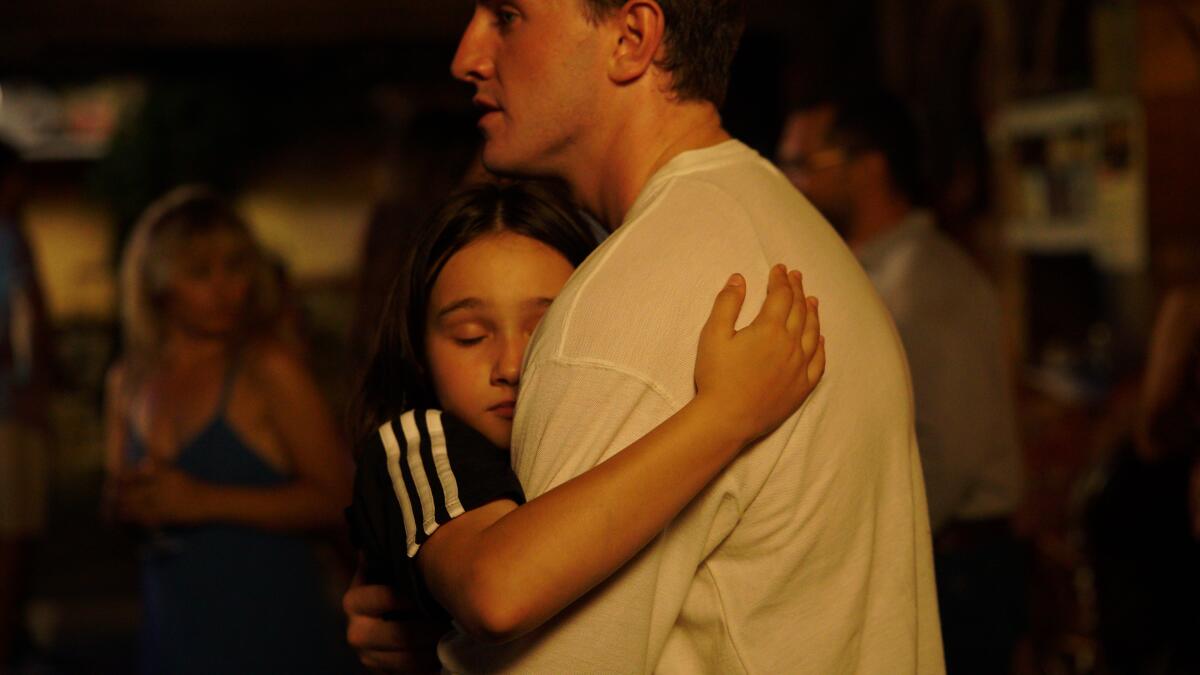
When I ask how it felt to complete that first draft after 3 1/2 years, Wells grins, cracked open by the visceral memory of the moment. “It was the most uncomplicated sense of pride I’ve felt throughout the process. There was something so honest to it and surprising too, which was thrilling; the rave surprised me.” At this, Wells stands abruptly and retreats from the room. The rave she is referring to is a recurring interlude in which adult Sophie approaches Calum — the same age and appearance as we know him on the vacation — on a dance floor.
Returning empty-handed, Wells explains that she had been searching for her original outline, her golden ticket, a two-page day-by-day breakdown of Calum and Sophie’s trip, hoping to fact-check an assertion that the rave was not in it. “As I remember it, the image of the rave was a whisper, and when I chased it to the end of the draft I found my own journey represented on the page. The process of remembering, and of reflecting on loss and enduring love, had become what the film was fundamentally about.”
Actor Paul Mescal and director Charlotte Wells create emotional power even within the vagueness of reality in the film inspired by Wells’ life.
If writing at first was a necessarily siloed process, sharing the script with eventual partners — Adele Romanski, Barry Jenkins and Mark Ceryak of Pastel [Jenkins’ production company] — came as a relief and they continued to fiercely protect the process while pushing Wells to better articulate her vision. “Entrusting the script to Pastel was the first step in entrusting the story to an audience. The raw expression of feeling, which is indisputably mine, was conjured in that first draft. From that point forward, the rewrites, which were substantial, were in service of effectively communicating that feeling to others, in service of the characters and story on their own terms. The private became public not when we premiered at Cannes, but the moment the script left my inbox.”
As our time comes to an end, I can’t help but ask what Wells identifies as the most personal, arbitrary detail in the film, but she politely declines the question and so I pivot to her choice of mug, suspecting that if she’s anything like me, it was chosen for a reason. “Right now, this one reminds me of a path very nearly taken and of the choices that led me here. It is grounding, I think, to remember that the release of ‘Aftersun’ has been a long time coming and, despite my ambivalence about my role outside of making the film, this is exactly where I want to be.”
Every good film begins with a story.
More to Read
From the Oscars to the Emmys.
Get the Envelope newsletter for exclusive awards season coverage, behind-the-scenes stories from the Envelope podcast and columnist Glenn Whipp’s must-read analysis.
You may occasionally receive promotional content from the Los Angeles Times.
